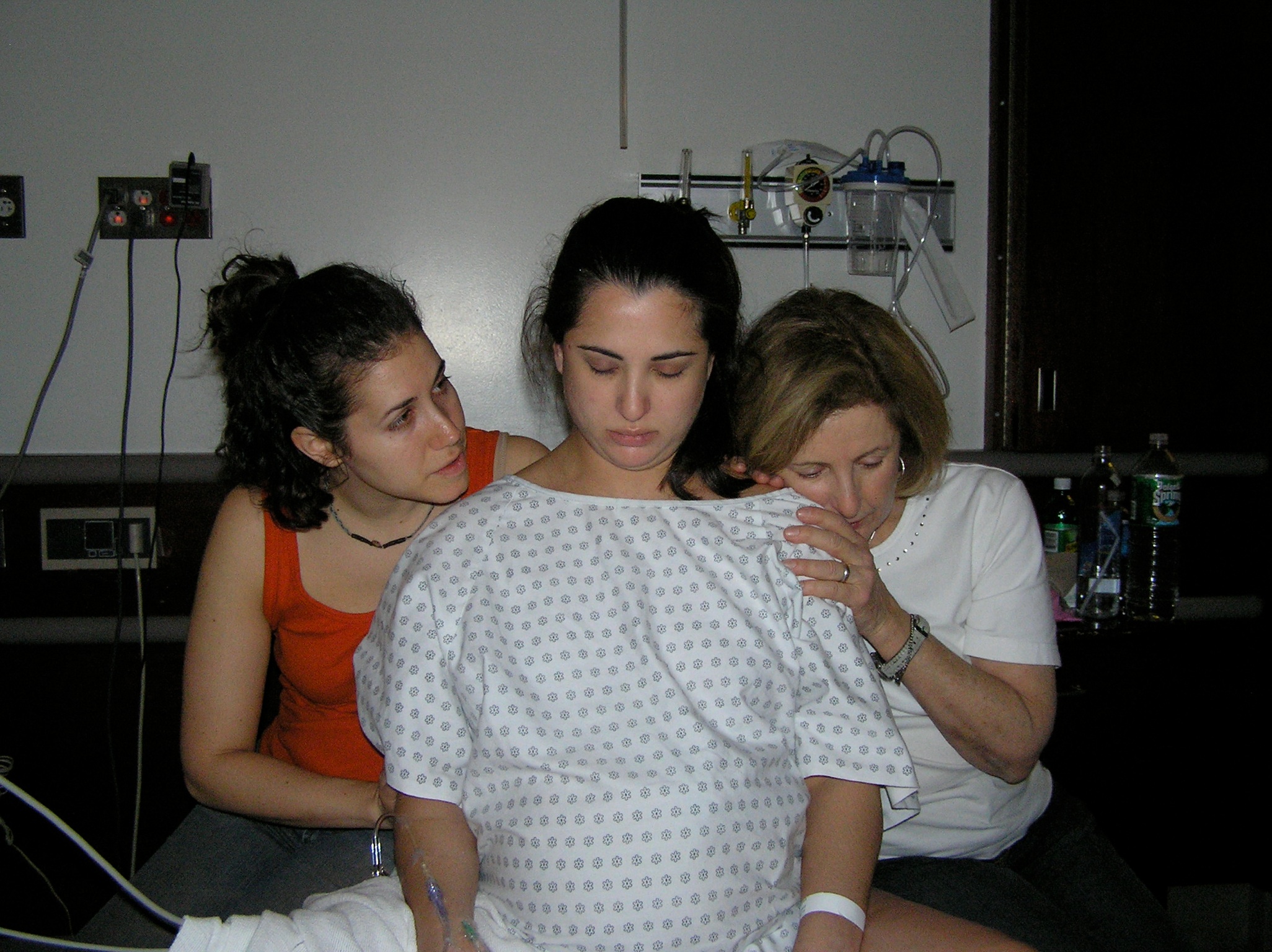As a doula, I’ve heard this lament time and time again: “I received the name of my doctor from a friend, and if I had known what to ask, I probably would have switched doctors a long time ago. Now I feel it is too late to change!”
Ideally, it’s best to have a very important conversation with your doctor at the beginning of your pregnancy to make sure that the way he or she practices medicine matches up with the way you want to birth. If you’re already into your pregnancy and a relationship with your doctor, be sure to ask these key questions at your next appointment! When you’re in labor, it isn’t a good time to start negotiating your labor and delivery wishes. It’s essential that you feel heard, supported and respected long before the big day!
What is your birth philosophy?
There are two basic philosophies to approaching birth. The first is the medical model, which emphasizes the pathologic potential of pregnancy and birth. As the art and science of managing pregnancy, labor, delivery and postpartum, this approach tends to lead to more managed care.
The second approach is the midwifery model, which subscribes to the idea that pregnancy and birth is a natural, physiological process that should be inherently trusted. This approach tends to have fewer routine interventions.
Neither of these schools of thought are wrong. It’s just important to find out ahead of time which direction the care provider tends to lean. If you’re approaching birth wanting to avoid most routine interventions, you should make sure that your care provider and the entire practice approaches birth that way. You can’t change the way your provider practices medicine, but you can change your provider.
How aggressively do you manage patient care?
In terms of a low-risk, healthy woman, how open is the practice to various birth options? For example: Is the practice going to let the laboring woman have intermittent monitoring, or are they insistent upon full-time EFM (external fetal monitoring)? When do they advise the mother to come to the hospital? Is she allowed to eat or drink freely throughout labor? Is the care provider open to non-traditional ways of pushing (i.e. side-lining, squatting, the all fours position), or do they prefer her on her back? Will the mother require mandatory IV fluids? Is the practice open to natural ways to augment labor like castor oil, nipple stimulation, acupuncture or evening primrose oil?
Many of the routine managed interventions have been studied and determined not beneficial for the mother and baby. In fact, ACOG (American College of Obstetricians and Gynecologists) recently changed their guidelines in regards to only offering ice chips to laboring women. They are now supporting clear liquids, such as water, fruit juice without pulp, carbonated beverages, clear tea, black coffee, sports drinks and clear broth. However, many care providers still have not changed their practice to adjust to this new information.
Restricted food and beverage intake is just one of the many routine interventions still enforced without strong evidence of the benefit. Have a clear understanding what you as a laboring mother would like or not like, and go over it point by point with your care provider.
What kind of schedule will you be on?
Some of these decisions may be hospital protocol; others may be up to the care provider. Discuss the following areas of schedule ahead of time:
* How long can I labor before artificially augmenting labor (using pitocin), assuming the amniotic sac has not broken?
* How long can I labor if my water has broken?
* How long can I labor with labor augmentation?
* How far past my estimated due date can I go without being induced, assuming my baby and I are fine?
* How long am I allowed to be in the second stage of labor the pushing stage?
* How long can I labor at home?
If you’re feeling resistance, ask a few questions that might help clarify the reason for the resistance, and possibly give you more time. (“What would happen if we wait? Am I OK? Is baby OK? Can we have more time?”)
What are the statistics or rates of the practice?
Taking a closer look at the rates and statistics of the practice will help answer a lot of questions regarding the care provider’s approach to birth. Inquire about the following:
* What is your c-section rate?
* What is your induction rate?
* What is your episiotomy rate?
* What is your instrumental delivery (forceps and vacuum extraction) rate?
* Does your practice work with more high-risk women than low-risk women?
These answers will color the statistics of the practice. If the practice primarily works with high-risk women, they may be more inclined to suggest an induction or cesarean birth, because they may be used to approaching birth in that manner.
When does your care provider arrive at the hospital or birth center? How involved is he or she in the labor process?
On several occasions, I have seen women ready to push, but were told not to since their care provider was not at the hospital yet. These births were not particularly speedy, and should have given the care provider enough time to arrive and be prepared. A mother should never have to fight her natural impulse to push her baby out, simply because her care provider is not present.
Some care providers are very involved with the labor process and check in often, or even stay in the room for a bit. Usually midwives are most involved in the labor process, but some doctors are wonderfully supportive, as well. A doctor once told me, “My teacher in medical school told me, ‘The most important thing an OB needs is a comfortable chair. Sit back and let nature unfold.’” This is the kind of support laboring mothers need and deserve!
Enjoying this podcast? Subscribe, rate, and review us on iTunes or Stitcher!
About Deb Flashenberg, CD(DONA), LCCE, E-RYT 500, RPYT:
Deb is a graduate of the Boston Conservatory of Music with a degree in Musical Theater. She has spent most of her life performing and was introduced to yoga through a choreographer in 1997. After several years as a yoga student, she decided to continue her education and became certified as a Bikram Yoga instructor. In 2001 Deb headed out to Seattle to study with renowned prenatal yoga teacher Colette Crawford, R.N., at the Seattle Holistic Center. Deb has received certification for Vinyasa Yoga from Shiva Rea as well as completed the OM Yoga advanced teacher training with Cyndi Lee in 2004. Deb has also studied the Maternal Fitness Method with Julie Tupler. Deb currently studies with Cyndi Lee, Genevieve Kapular, and Carrie Owerko.
After being witness to several “typical” hospital births, Deb felt it was important to move beyond the yoga room and be present in the birthing room. In 2003, Deb attended her first birth as a DONA certified labor support doula. In that short period of time, Deb has attended about 100 births. She is continuously in awe of the beauty and brilliance of birth.
In 2006, Deb received her certification as a Lamaze® Certified Childbirth Educator. In September of 2007, Deb completed a Midwife Assistant Program with Ina May Gaskin, Pamela Hunt and many of the other Farm Midwives at The Farm Midwifery Center in Tennessee.
Deb is a regular contributor to New York Family Magazine and Mommybites as Birth and Prenatal Yoga Expert and has been published in the book, Doulas (chapter 7!) Midwifery Today, Doula International, The Lamaze International Blog, Birthing With Confidence among many others. In April 2016, Deb had the honor of being a presenter at the Yoga Journal Live New York Conference.
Deb’s most recent undertaking is her podcast, Yoga| Birth | Babies. Deb has had the incredible pleasure speaking with and learning from some of the birth business’s most influential and respected speakers, Deborah Pascalli-Bonero, Dr Sarah Buckley and Farm Midwife, Deborah Flowers.
Drawing on her experience as a prenatal yoga teacher, labor support doula, childbirth educator and mother, Deb looks to establish a safe, effective and empowering class for pregnancy and beyond. Deb is the proud (and tired!) mother of her son Shay and daughter Sage.







